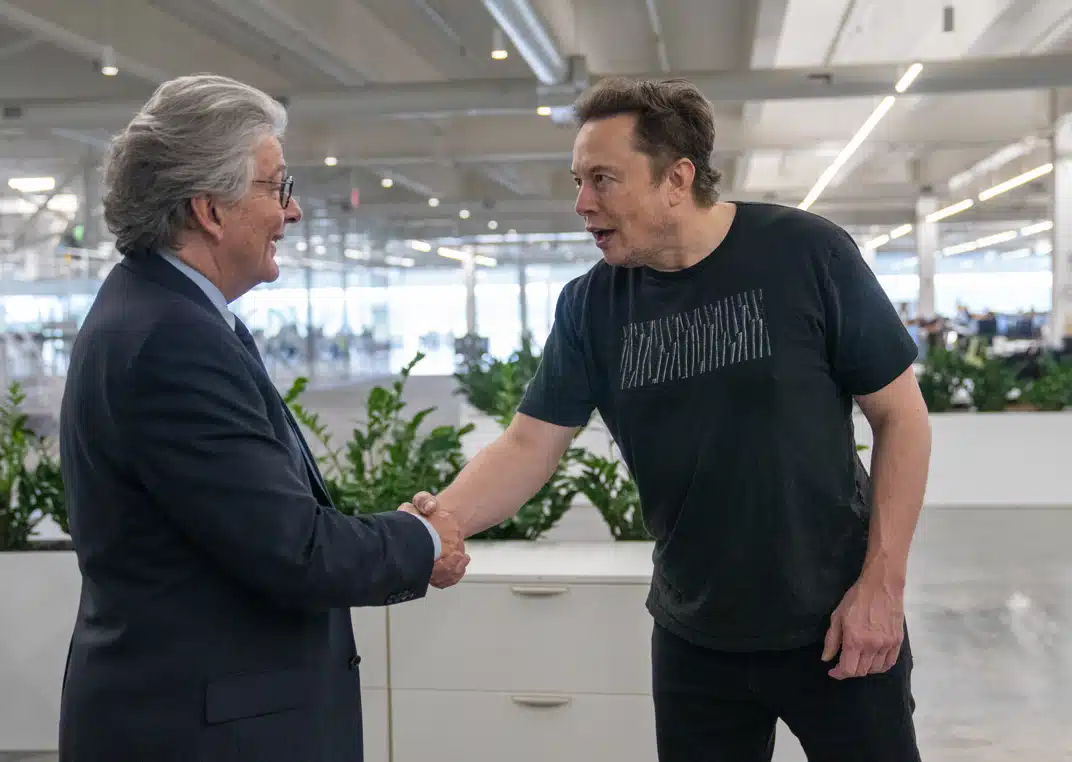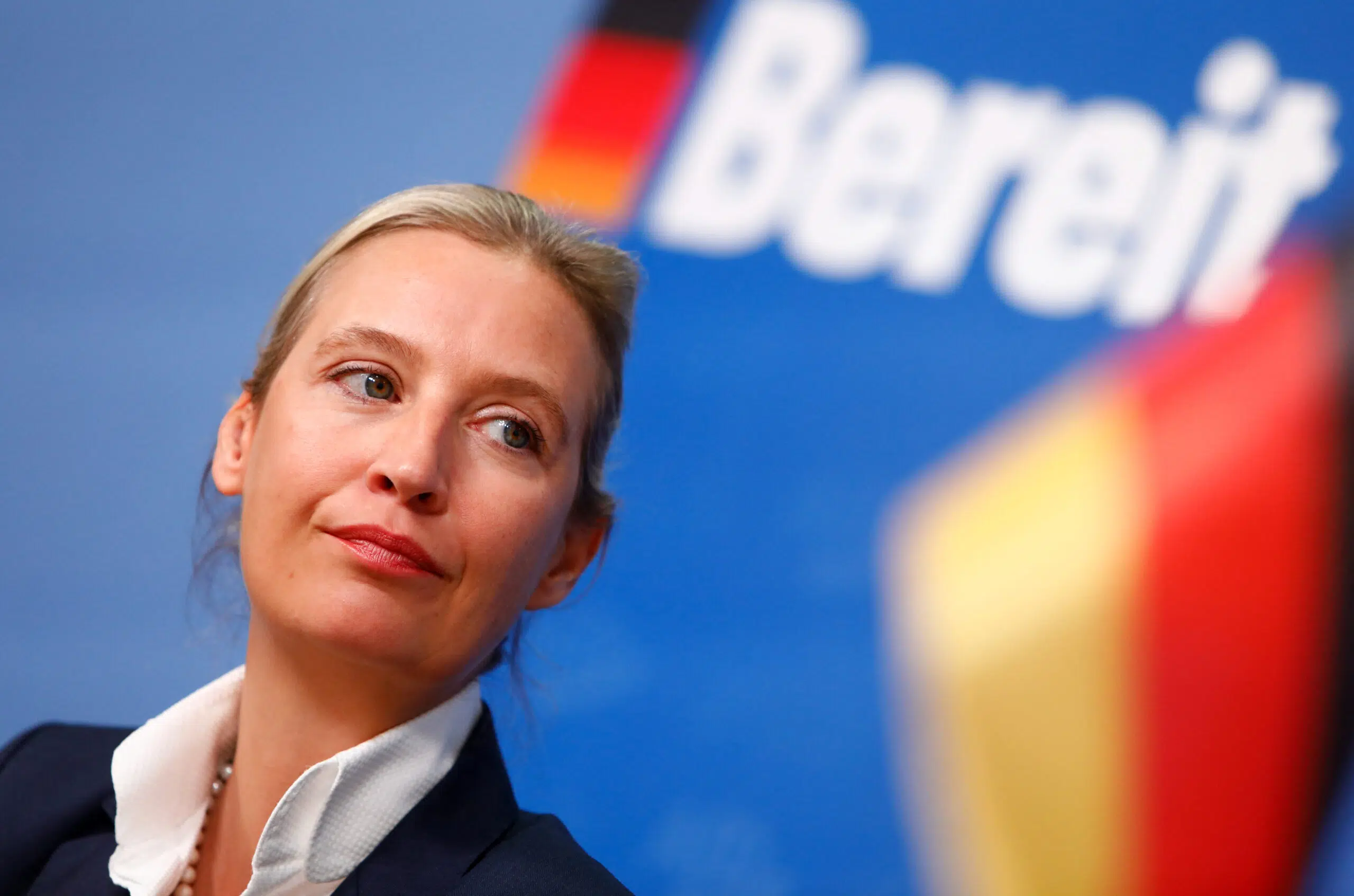Brussels – Elon Musk and the European Commission are on a collision course. The clash between Brussels and the very wealthy South African entrepreneur naturalized US – and future Trump administration adviser – seems inevitable, despite the caution with which the EU executive is responding to the increasingly frequent attacks of the owner of X on the policies of the old continent. The showdown could take place at the German elections on February 23: Musk has already mobilized his social platform to support the far-right Alternative für Deutschland (AfD), unconcerned about his obligations under the European Digital Services Act (DSA).
In reality, the EU Commission opened a formal proceeding on the former Twitter in December for, among other things, “suspected breaches in areas related to risk management, civic discourse, and electoral processes.” Recently, coinciding with his entering politics alongside Trump, the Tesla CEO and SpaceX founder several times intervened strongly on what is happening in Brussels or member states, going as far as calling the European Commission an ‘undemocratic’ body or attacking Italian magistrates responsible for blocking the transfer of migrants to the centers wanted by Meloni in Albania. “Elon Musk can express his views on European policy. It is his right within the framework of freedom of speech, which is the basis of the Digital Service Act (DSA),” a European Commission spokesman responded yesterday to the continued attacks by Must on the internal policies of several EU capitals.

However, Musk announced that on Thursday, January 9, he will host a livestream on X with AfD leader Alice Weidel ahead of the German election. In principle, “nothing forbids it,” spokesman Thomas Regnier clarified, but the question is: “How much is [it] or will it be boosted?’ this is what the Commission will be looking at.” The DSA requires large platforms to analyze and mitigate potential “systemic risks” related, for example, to electoral processes and civic discourse. The determining factor on whether Musk will breach European law is to what extent the X algorithm will promote the streaming appointment with the leader of Germany’s far-right. In a concerned letter addressed to the European Commission Executive Vice-President Henna Virkkunen, German MEP Damien Boeselager highlighted the risk that Musk “has inserted a multiplier in the X code” that would allow him to amplify disproportionately his content on the platform he owns.

If so, the live stream with Weidel “could very well become part of the ongoing investigation into X,” the European Commission spokesman continued. Still, this is not a good starting point ahead of the roundtable scheduled for January 24 that will bring together the Commission services, coordinators of German digital services, civil society organizations, and major online platforms, including X, “to discuss the risks ahead of these elections.” The attitude adopted by Brussels towards the efforts of the head of X to destabilize European democracies remains wait-and-see, as the EU executive’s chief spokeswoman, Paula Pinho, made clear. “The more we talk about him (Musk), the more we promote him,” she said.
The one who spoke openly about it – without, however, calling him by name – was French President Emmanuel Macron, who, during a conference of French ambassadors, said: “Ten years ago, if anyone had said that the owner of one of the world’s largest social networks would support a new reactionary alliance and intervene directly in elections, even in Germany, who would have imagined it? This is the world where we live, and we have to be diplomatic.” On the other hand, the British Labour prime minister, Keir Starmer, condemned the harsh attacks by Mus against him and the government, defining them as “lies and misinformation.”
The problem, in the very short term, risks becoming diplomatic because Musk will become head of a new body with advisory duties regarding cutting federal agency spending in the future Trump administration. The privileged interlocutor of the Trump-Musk couple is the Italian Prime Minister Giorgia Meloni, who had to deny reports in the international press about the imminent signing of a 1.5 billion euro deal with SpaceX for the use of the Starlink satellite communication system, on which the European Commission, again, preferred not to comment. “We have not received any information on this. Italy is a sovereign state and can conclude such agreements,” a Brussels spokesman glossed over.
English version by the Translation Service of Withub







![Un campo coltivato [foto: imagoeconomica]](https://www.eunews.it/wp-content/uploads/2025/04/campo-coltivato-120x86.png)